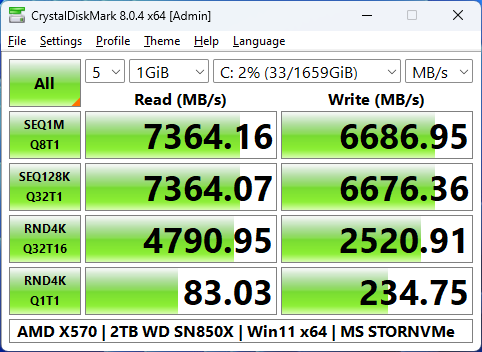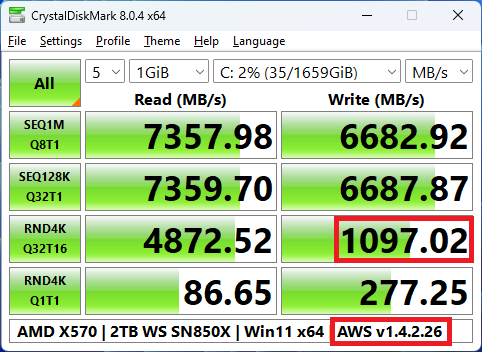@pacuro
Thanks for offering here the rather new AWS NVMe drivers v1.4.2.26 WHQL.
After having read the related text and done a test installion of the AWS NVMe Instance Storage Adapter driver v1.4.2.26 I found out this:
-
The AWS NVMe drivers have been designed for being used either
a) with an AWS NVMe “Elastic Block” Storage Adapter or
b) with an AWS NVMe “Instance” Storage Adapter
while running a Windows Server OS from 2012 up. -
With my AMD X570 chipset system running Windows 11 x64 Build 22621.1555 on a 2TB WD SN980X SSD I got better benchmark results with the generic in-box MS NVMe driver than with the specific (but here not matching) AWS NVMe driver.
Here are my results:
a) MS in-box NVMe driver named stornvme.sys:

b) AWS NVMe Instance Storage Adapter driver v1.4.2.26 WHQL:

This is simply not true.
By the way - your Samsung 970 EVO Plus SSD doesn’t contain an AWS NVMe adapter.